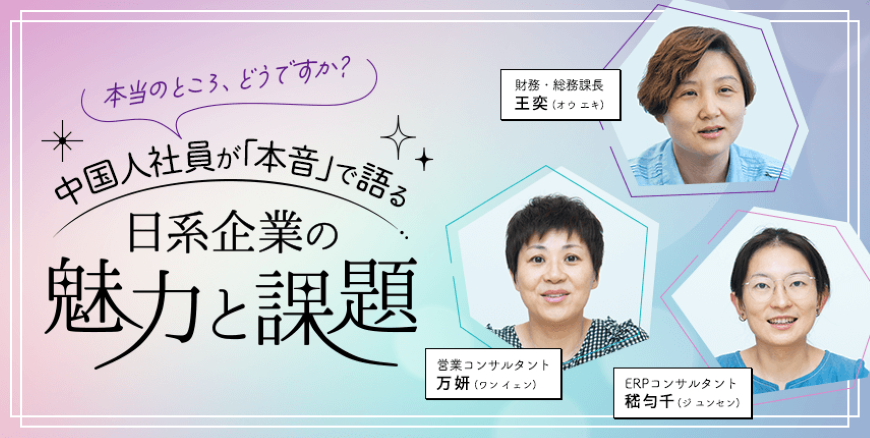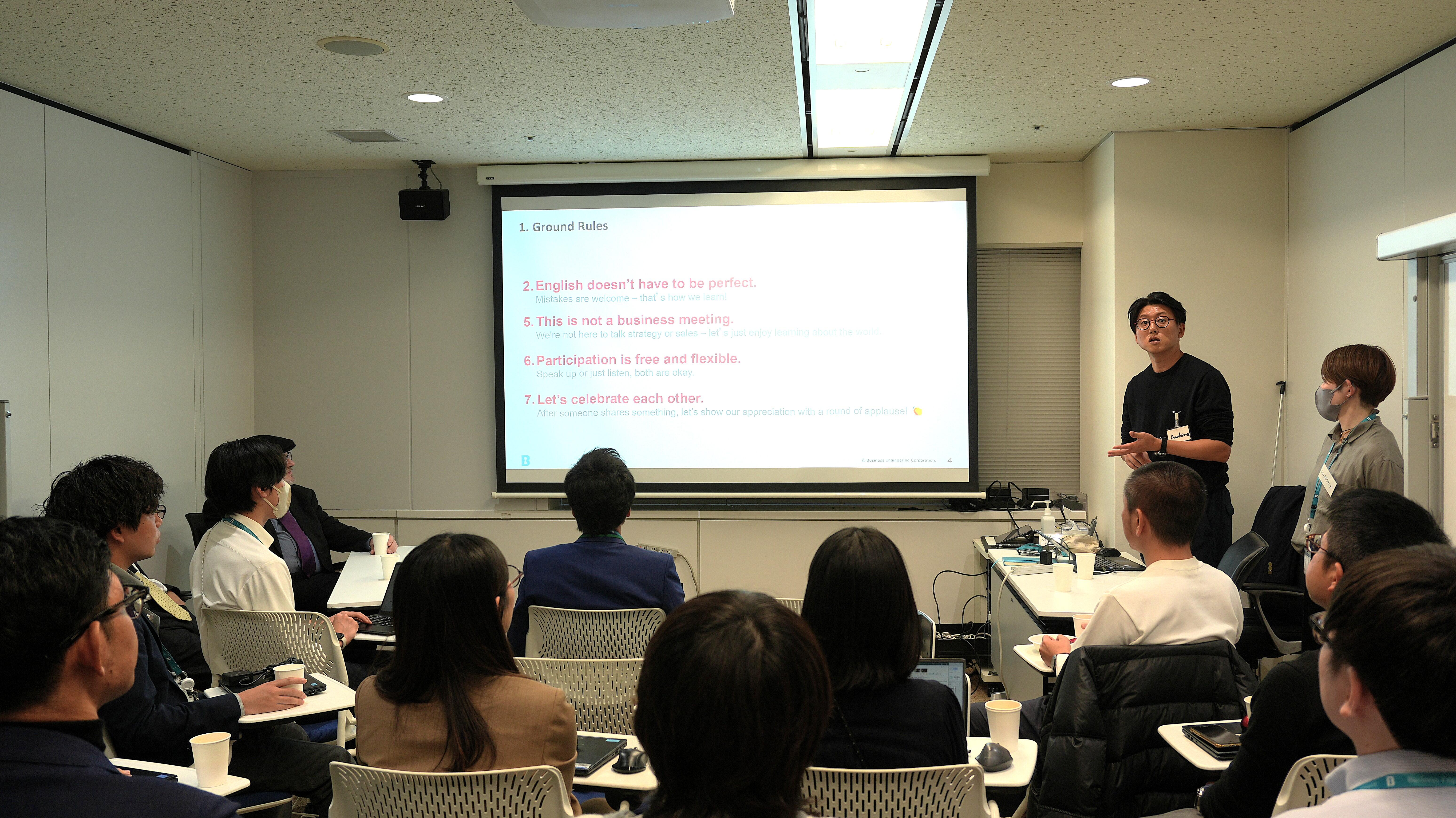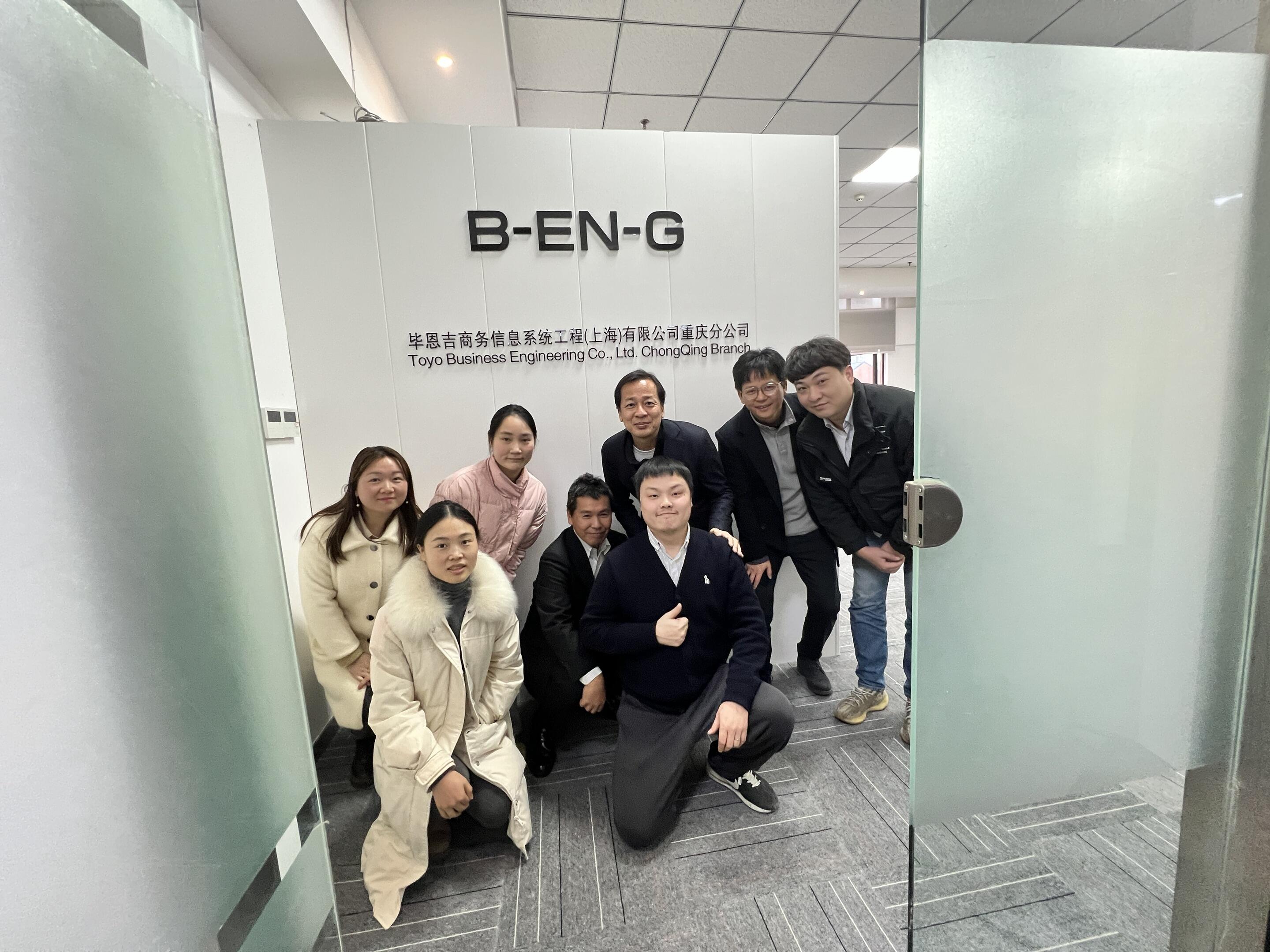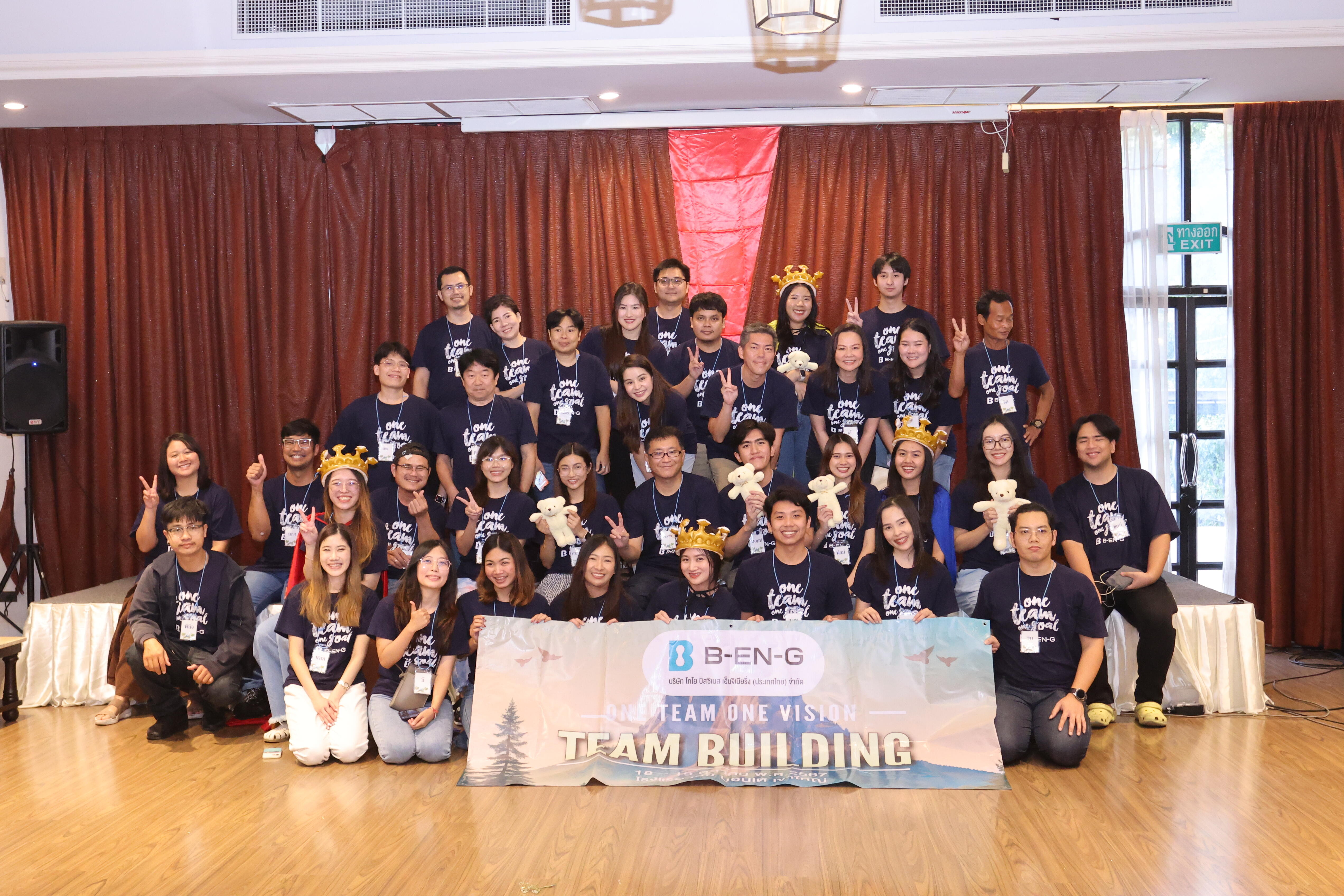China has established itself as the "world's factory" until now. However, in recent years, rapid development has led to rising labor costs and labor shortages. Concurrent with sluggish personal consumption and foreign demand, and a prolonged real estate slump, concerns are growing about a slowdown in economic growth. As China, which has supported the global economy, enters a new phase, how should local subsidiaries of Japanese companies build their organizations? Also, what strengths should they develop? A roundtable discussion was held at Business Engineering's local Chinese subsidiary, "B-EN-G Shanghai," to seek hints and paths forward from the perspective of local staff who know both China and Japan.
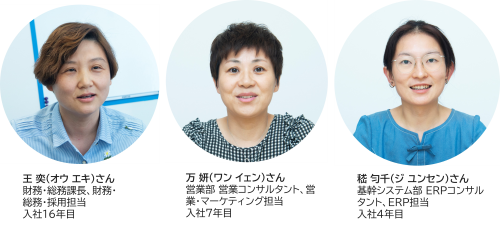
Why did you choose to work for a Japanese company?
-First of all, please tell us why you decided to work at B-EN-G Shanghai, a local subsidiary of a Japanese company.
Ms. Wan Yan (hereinafter, Ms. Wan):I used to work for a Japanese IT company, so I had many acquaintances from Japanese companies. Among them was someone who had left B-EN-G Shanghai, and I heard from him that it was a good place to work. I was interested in the company because someone who had left recommended it so highly, so I wanted to join.
Ms. Zhao Yunqian (hereinafter, Zhao):I felt that I could increase my own value. B-EN-G Shanghai deals with ERP (Enterprise Resource Planning) - a core system essential for the management of the manufacturing industry. As a consultant, I coordinate with clients, package vendors, and in-house technical personnel to overcome challenges and achieve implementation. I like that kind of communication, so I thought it would be rewarding.
Wang Yi (hereinafter referred to as Wang):I felt an affinity with Japanese culture, such as music, and studied Japanese at a night school, so I chose a Japanese company to utilize my language skills. I joined an IT company that provides ERP for accounting operations for Japanese companies expanding overseas, and since that business was transferred to Business Engineering, I have continued to work at B-EN-G Shanghai.
--You all speak Japanese fluently. Aside from the language, what other things do you keep in mind when working for a Japanese company?
Mr. Takashi:I had heard before I joined the company that Japanese companies require frequent communication, as in the word "Ho-ren-so" (report, contact, and consultation). Therefore, even after joining the company, I have continued to be conscious of not forgetting to report, contact, and consult, and of communicating carefully.
Man: I think what's good about working for a Japanese company is that employees have a sense of belonging.
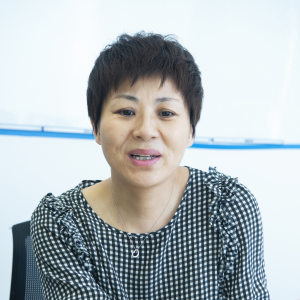
A sense of belonging creates good teamwork in an organization. Of course, it depends on the company, but Chinese workplaces tend to have an image of being individualistic. Because individual achievements are emphasized, competition is fierce and human relationships tend to be difficult. On the other hand, at B-EN-G Shanghai, we work as a team on any job. This may be natural for Japanese people, but we work with teamwork as our number one priority.
"Losing out" to Chinese companies in recruitment
--From your perspective, what questions or problems have you encountered while working as local staff at a Japanese company?
Wang: Basically, the Japanese way of working and rules are rational and I don't have any doubts about them. However, the administrative department I belong to is not a technical or administrative department, so it's hard to see directly where profits are being generated.
--Are there any challenges you are facing in terms of recruitment?
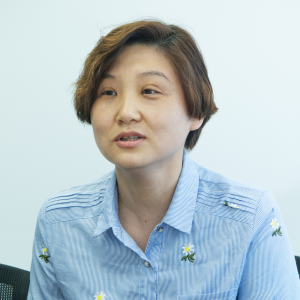
Wang:In the past, many people wanted to work for a Japanese company.But now, it seems like Japanese companies aren't getting as much attention as they used to. As a recruiter, I feel this change even more. There are also more cases where people who seemed like good candidates during the interviews end up losing out in favor of Chinese companies. The gap between Japanese and Chinese companies in terms of treatment is narrowing, or in some cases, people are starting to think that Chinese companies are a better choice.
In addition to these benefits, there are many cases where people choose Chinese companies because of the future development potential, even if the salary is low. In recruitment activities, it is becoming necessary to highlight not only benefits but also factors that attract applicants, such as the work content.
"Even though I'm in China..."
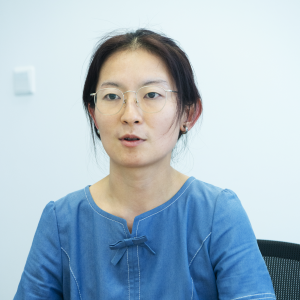
--The topic of Japanese companies losing their presence in recruiting, while Chinese companies are being chosen, is of great interest to me. I hear that a similar phenomenon is increasing not only in recruiting but also in business. Chinese companies are becoming the choice of customers, but what challenges do you think Japanese companies face, including in terms of organizational structure?
Man-san:In my actual sales work, I feel that it takes a long time for applications and approvals at Japanese companies. I imagine that this is due to the large number of approvers required for a decision to be made. Also, when it comes to documents to be submitted, such as invoices and payments, each company has a specific format, and there are no common templates, which I feel makes things inefficient.
--Japanese companies place importance on appropriate time and process for careful consideration, but it seems that there are some aspects where local people feel that it is taking too long. Do you have any ideas for Japanese companies to further adapt and develop in China, including such aspects?
Wan:Many Japanese companies operating in China have other Japanese companies in China as their customers, so even though they are in China, it seems like they are only doing business with other Japanese companies. Finding a reliable local partner in China and expanding your business and personal network could be one way to make a breakthrough.
--Please tell us why you are still working at B-EN-G Shanghai and what you think is good about the organization's structure.
Mr. Takuya: I think it's great that we can deepen our friendships through the company event called "Team Building" that is held every year. In addition to working on issues in each department, the entire B-EN-G Shanghai also goes on a three-day, two-night study trip once a year. On the study trip, we plan small sports days and recreational activities, which allow us to discover different sides of our members and also serve as an opportunity to further strengthen our teamwork.
Man: One of the most satisfying experiences I've had was when we proposed an ERP product to a customer, and even though we didn't meet their desired price criteria compared to several competitors, they chose us because they evaluated us highly, including our service. I'll never forget the experience of being supported by a proposal that was unique to a Japanese company, including not only price but also service.
Wang: I think it's great to work at this company because we take care of each other as members of the organization. Also, while B-EN-G Shanghai is a Japanese company, it has the advantage of being able to adapt to circumstances like a Chinese company, and we are able to do a variety of things in a positive manner. On the other hand, as a Japanese company, we also value working as a team, so our organization combines the best of both Chinese and Japanese companies, making it an easy place to work and rewarding.
A long rope skipping competition held as a team building event (January 2018)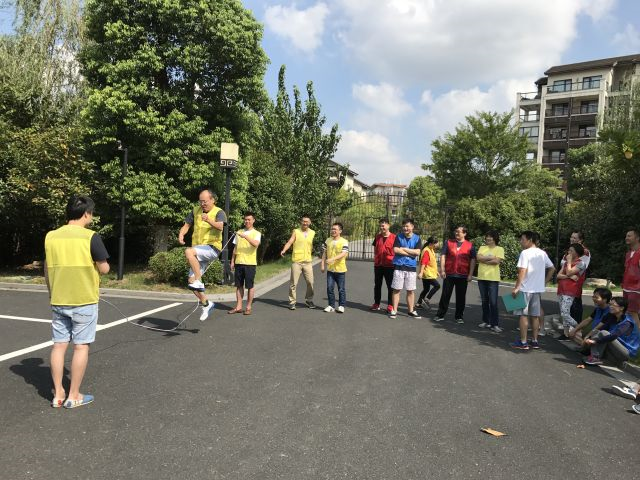
Avoid internal conflict within the organization
Three local staff members who support the front lines of local subsidiaries discussed the questions they have about the organization of Japanese companies and the differences between them and Chinese companies, but what kind of perspective do the executives who are at the forefront of organization building and direct management have? After the roundtable discussion, we spoke with two executives from B-EN-G Shanghai and asked them about how they deal with the Chinese market and the characteristics of the organization at B-EN-G Shanghai.
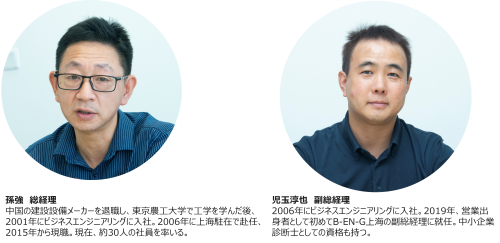
--When you compare Chinese companies with Japanese companies, what differences do you think there are in the way organizations are run?
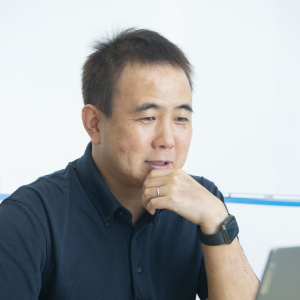
Deputy General Manager Junya Kodama (hereinafter referred to as Deputy General Manager Kodama): I have the impression that Chinese companies are superior in terms of organizational decision-making. There is a strong tendency for work to proceed with a top-down approach and an emphasis on speed through trial and error. I don't think that's necessarily a good thing, but in China, many unexpected events occur, so I think organizational agility is an important factor.
--What kind of organizational management have you been focusing on under these circumstances?
General Manager Sun Qiang (hereinafter referred to as General Manager Sun): We have been conscious of organizational stability. In order to provide stable services, our own organizational management must be stable. We share visions and goals, and place importance on teamwork. In order to improve individual performance, we have also focused on improving our fair compensation system.
In organizational management, we have tried to prevent "internal competition." Internal competition is a term that refers to irrational internal competition. It's not a bad thing to be highly motivated, but a culture of chasing superiority through excessive competition makes it difficult for a team to perform well. Some people end up being crushed by setting unreasonably high goals. We try to manage while being careful to strike a balance between performance and ease of working.
Continuing to support the "success" of Chinese business
--Please tell us about the characteristics of B-EN-G Shanghai's organization.
Vice General Manager Kodama: B-EN-G Shanghai is a local organization, and I am the only Japanese person. We have several veteran local staff who have been working here for many years, and they support customers with various concerns. We look at issues from the same perspective as our customers and work together to find solutions. We believe that having many staff members who approach their work with this attitude is one of our strengths.
-Please tell us about your vision for the future.
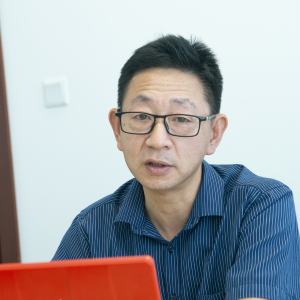
General Manager Sun: While our number one priority is to ensure the stable continuity of our business, we are also working on new challenges for the future. We are also working on projects to launch Chinese-made products, such as products related to DX (digital transformation) and a technology called "digital twin" that collects information from the real world and reproduces that information in a virtual space.
And as Mr. Kodama mentioned, our strength lies in our human resources. Our IT specialist staff will support customers in multiple languages, Chinese, Japanese, and English, and propose digitalization systems and models that will help them solve their problems. B-EN-G Shanghai will continue to take on new challenges without stopping in order to continue to be chosen as the partner that supports the success of Chinese businesses.
